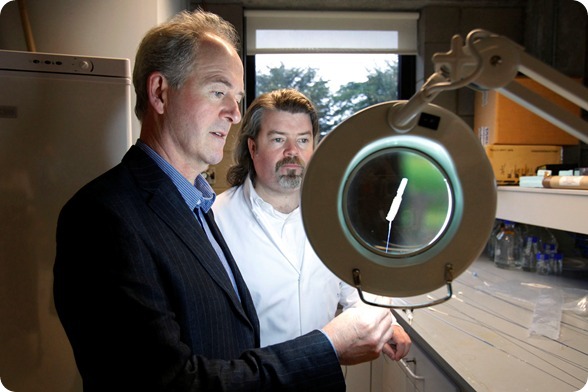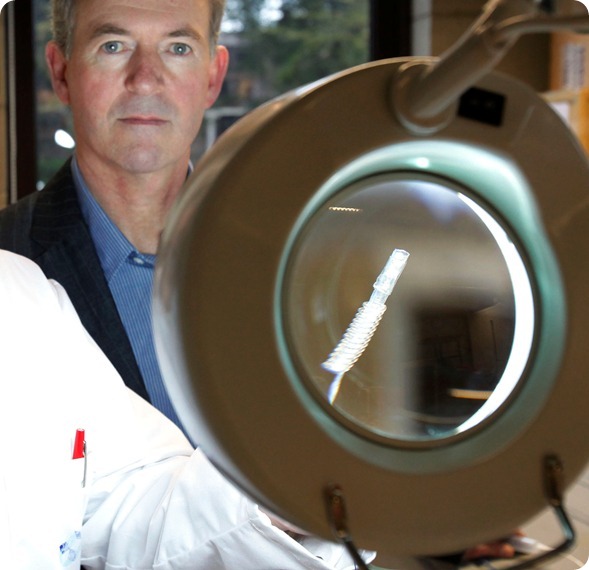A novel medical device technology to treat narrowed or obstructed blood vessels invented by UL researchers has been licensed to Galway-based medical devices company, Clada Medical.
Developed by biomedical engineers at the University of Limerick the device will improve success rates in angioplasty procedures. It is estimated that over 1 million angioplasty procedures are undertaken worldwide each year and the value of products relating to this procedure is in the region of €500million.

 Angioplasty is the technique of mechanically widening a narrowed or obstructed blood vessel. During this treatment particles of the fatty deposits can become dislodged and enter the blood stream which can block other arteries resulting in strokes or heart attacks. Embolic protection devices are often used to capture and remove the dislodged fatty deposits.
Angioplasty is the technique of mechanically widening a narrowed or obstructed blood vessel. During this treatment particles of the fatty deposits can become dislodged and enter the blood stream which can block other arteries resulting in strokes or heart attacks. Embolic protection devices are often used to capture and remove the dislodged fatty deposits.
Dr Michael Walsh, principal investigator and lead inventor explains; “This device combines angioplasty balloon and embolic protection technologies allowing for continuous blood flow during the procedure. In practice, this means the angioplasty balloon can be left in a full inflated state in the artery for a longer period of time than is currently possible. This will increase the efficiency of the angioplasty procedure and offers significant potential as a platform for drug-device combinations.”
Clada Medical is an Irish-owned company that provides medical device design, research and development, testing and OEM manufacturing services from its Class 8 clean-room facilities in Galway. The company has particular expertise in balloon mould manufacturing and custom balloon/catheter design.
Ray Blowick, CEO of Clada Medical, said; “The application of the UL invention to perfusion balloon technology is very important for the future of our company. Our commercial strategy includes growing our company through the development and licencing of new technologies which will lead to new jobs and increased exports in this important sector for Irish industry”.
This research was funded by Enterprise Ireland and undertaken at the Centre for Applied Biomedical Engineering Research (CABER), based in the Materials and Surface Science Institute (MSSI), University of Limerick.
For further information about CABER go to www.ul.ie/caber
For further information about Clada Medical Devices go to www.cladamedical.com